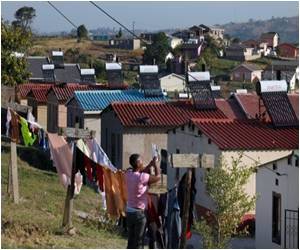China's top legislative body adopted Saturday an amendment to the renewable energy law to require electricity grid companies to buy all the power produced by renewable energy generators.
The Standing Committee of the National People's Congress adopted Saturday an amendment to the renewable energy law to require Chinese electricity grid companies to buy all the power produced by renewable energy generators.
Power enterprises refusing to buy power produced by renewable energy generators will be fined up to an amount double that of the economic loss of the renewable energy company, it said.The Standing Committee is made up of about 150 members of the National People's Congress (NPC) of the People's Republic of China (PRC). It is convened between plenary sessions of the NPC. It has the constitutional authority to modify legislation within limits set by the NPC, and thus acts as a de facto legislative body.
The amendment, approved by lawmakers after it was heard the second time at a five-day meeting of the Standing Committee, aims to support the country's fledgling renewable energy sector.
The State Council energy department, in conjunction with the state power regulatory agency and the State Council finance departments, will "determine the proportion of renewable energy power generation to the overall generating capacity for a certain period."
Renewable energy includes non-fossil fuels such as wind and solar power, hydropower, biomass, geothermal and ocean energy.
Still, two-thirds of China's energy supply is fueled by coal, and the country has become one of the largest greenhouse gas emitters, China Daily admitted.
Whether the amendment would create a boom in renewable energy in China will depend on how much money companies could earn in the sales. This amount paid per kilowatt-hour produced is the key to the success or failure of Feed-in Tariffs to generate more renewable energy.
Advertisement
Compressed Air Energy Storage (CAES) refers to the compression of air to be used later as energy source. At utility scale, it can be stored during periods of low energy demand (off-peak), and for use in meeting periods of higher demand (peak load).
Advertisement
Already, some of the rocketing investment in wind is currently wasted as China has lurched into huge renewable projects without the storage or spacing needed. Ideally, wind farms need to be spaced out over large areas to ensure constant supply.
Despite its behavior at Copenhagen, China has actually done far more so far than any other nation to reduce greenhouse gases, says Susan Kraemer, writing on Clean Technica.
Source-Medindia
GPL









